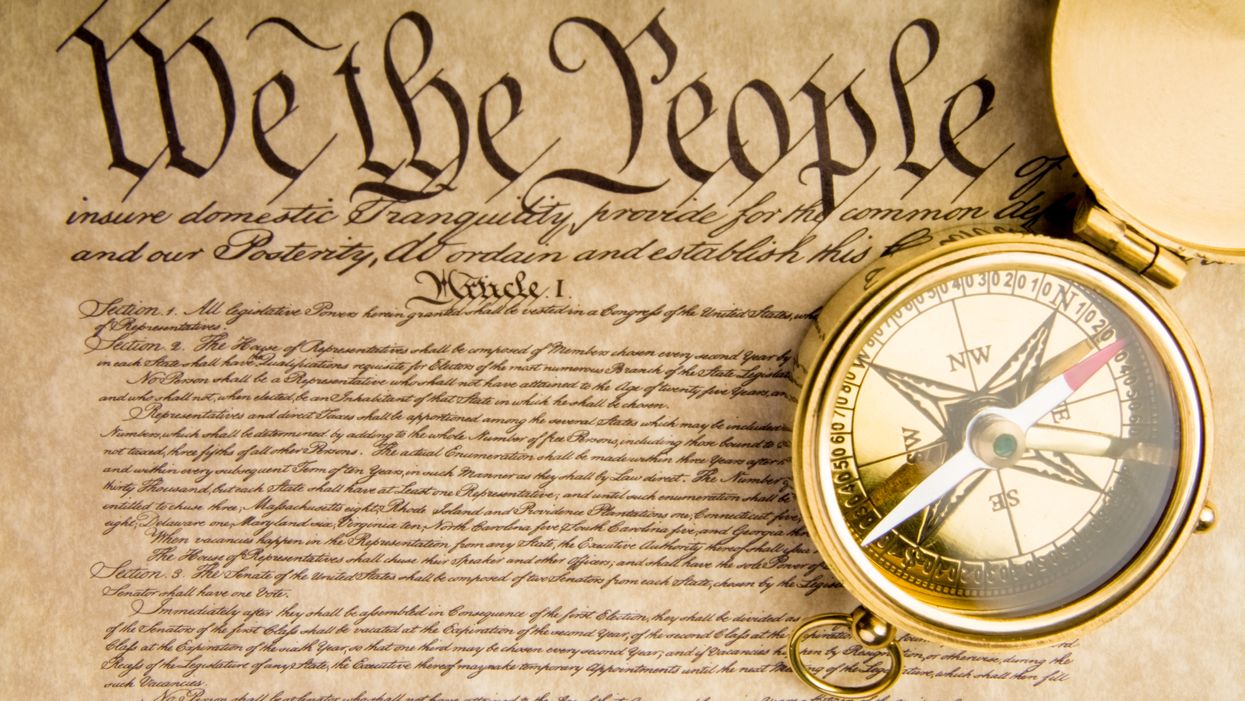
Photopa1/Getty Images

There are constitutional limits to even the emergency authority of governors and mayors.
Everyone agrees that states have broad internal police power to take action to stop the spread of a public health crisis. You know, kind of like the federal government has power to stop the security and health crisis at our border, yet failed to act upon it for over a year. But are there no limits whatsoever to these internal powers? Can any governor or county executive simply flick his pen and shut every business even if it doesn't create crowds? Can they unilaterally restrict every aspect of the Bill of Rights indefinitely without any oversight, due process, benchmarks, or transparency?
In Jacobson v. Massachusetts (1905), the Supreme Court ruled, "It is within the police power of a State to enact a compulsory vaccination law, and it is for the legislature, and not for the courts, to determine." It therefore held that the state's mandatory vaccine against smallpox was within its constitutional authority. This built upon the established concept alluded to in the landmark Gibbons v. Ogden (1824) case that "reasonable regulations established directly by legislative enactment as will protect the public health and the public safety."
However, that same court made it clear that there is a point where states can enact policies in "such an arbitrary, unreasonable manner, or might go so far beyond what was reasonably required for the safety of the public" that they would be outside constitutional bounds.
A vaccine is a onetime action that helps an entire community. But what about governors and mayors holding press conferences every day trying to outdo each other with broad, arbitrary, and indefinite restrictions on people's movement outside their homes with few exceptions, even when they never tested positive for the virus? Traditionally, our quarantine laws throughout history were targeted to those who had the disease or to those aliens or even Americans landing at a port of entry, not applied against an entire state.
It is true that in Compagnie Francaise de Navigation a Vapeur v. Louisiana State Board of Health (1902), the Supreme Court sided with a Louisiana quarantine law barring even healthy people from entering the ports of an infected part of the state. However, even there it was not a shelter-in-place law against every single citizen already residing in the state; rather, it walled off certain parts of the state from new entrants, primarily foreign nationals, disembarking from ships.
We've simply never done this before in our history. These are not mere quarantine laws that supporters cite to justify what is going on today. Quarantine laws traditionally separate an individual or an entire group of people from the general population. What we are doing now, however, is locking down the entire general population.
Whether they use the term or not, governors are ordering nothing short of martial law, shutting down nearly all businesses and churches to the point that there will be no public services for Easter and Passover under any circumstance, and unemployment will surpass the levels of the Great Depression. Yes, there are times when that might be necessary, but the question should require a debate, transparency, time limits, and the production of more evidence about the value of these additional measures, which will undoubtedly grow legs in the coming days.
One might retort that in this circumstance, with modern travel, the disease is already rampant everywhere. But that is circular logic. In that case, it casts doubt on the entire premise of categorical lockdown, given that this has already spread to every state. Locking everyone down indoors is not a proven method of quarantine in this circumstance, where the virus is already ubiquitous.
Moreover, most of the past court cases were over clearly constructed statutes. These edicts are nothing more than memos unilaterally drawn up by governors and mayors every few days. They are arbitrarily constructed and enforced. Mass transit, the ultimate virus spreader, is still open, yet single businesses with few people in the office are closed, and individuals just driving alone in their cars for pleasure or strolling in a state park can get pulled over by a cop. Marijuana shops are considered essential in California, but not gun shops. So many important medical procedures are banned, while abortion in many states is still considered "essential."
There's got to be some limit. As the Supreme Court said in the landmark Shelton v. Tucker (1960) case, "Even [when] the governmental purpose [is] legitimate and substantial, that purpose cannot be pursued by means that broadly stifle fundamental personal liberties when the end can be more narrowly achieved." It can't be unlimited and indiscriminate, and pronouncing the death penalty on jobs, the economy, and the mental health of hundreds of millions of people is as broad as it gets.
Remember, these governors are just getting warmed up. We're only two weeks into this phase. At this pace, if we don't rise up and demand answers, there is no limit to what these politicians might do with their divine right of kings. It's appalling that Congress and state legislatures are in recess indefinitely, as random executives – from governors and mayors to county supervisors and sheriffs – rule the nation by fiat. It's time for some real debate and accountability with public input and hearings (remotely, if needed).
All of us are willing to sacrifice for public safety – a lot. But there are limits, and there are serious questions about whether those sacrifices are even helping, or in some instances, downright hurting. Either way, we will never recover from this devastating blow to liberty.
As Patrick Henry warned in 1788, "Show me that age and country where the rights and liberties of the people were placed on the sole chance of their rulers being good men, without a consequent loss of liberty! I say that the loss of that dearest privilege has ever followed, with absolute certainty, every such mad attempt."
Daniel Horowitz
Blaze Podcast Host